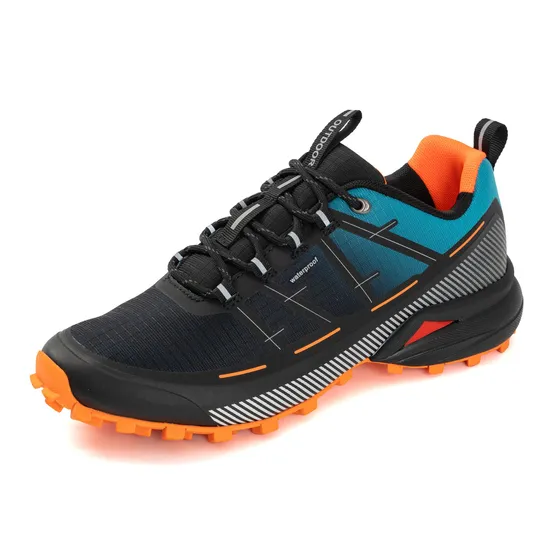
Gibraltar’s footwear market thrives on its strategic position as a gateway between Europe and North Africa, a booming tourism sector, and demand for durable, stylish designs suited to its Mediterranean climate. As a leading Chinese footwear manufacturer, exporting to Gibraltar offers access to a high-value, tax-efficient market with opportunities in retail, tourism, and export-oriented industries. This guide covers compliance requirements, logistics strategies, and market insights tailored for international buyers targeting Gibraltar.
—
Why Import Shoes from China to Gibraltar?
1. Cost Competitiveness: Chinese manufacturers produce high-quality footwear at prices 30–45% lower than EU/UK-based suppliers, ideal for Gibraltar’s competitive retail market.
2. Tax Efficiency: Gibraltar’s status as a British Overseas Territory offers unique tax advantages, including no VAT on imported goods when re-exported.
3. Market Growth: Footwear imports to Gibraltar rose by 10% in 2023, driven by tourism demand and rising interest in versatile, seasonal designs.
—
Step-by-Step Import Process
1. Supplier Selection & Quality Assurance
– Find Reliable Suppliers: Use platforms like Alibaba or Global Sources to connect with verified manufacturers. Prioritize suppliers with ISO 9001 (quality management) or OEKO-TEX certifications.
– Verify Compliance: Ensure products meet EU/UK standards (e.g., REACH for chemical safety, CE/UKCA marking for footwear components). Request samples tested for durability in Mediterranean climates.
– Negotiate Terms: Clarify MOQs (Minimum Order Quantities), pricing tiers, payment methods (e.g., LC or TT), and lead times (40–55 days for custom orders).
2. Compliance with Gibraltar/UK Regulations
– CE/UKCA Marking: Mandatory for footwear sold in the UK or EU-bound shipments.
– Labeling: Labels must include English text, EU size designation, material composition, and country of origin (“Made in China”).
– REACH Compliance: Ensure materials do not contain restricted substances (e.g., azo dyes, formaldehyde).
3. Shipping & Logistics
– Preferred Transport Modes:
– Sea Freight: Most cost-effective for bulk shipments (35–50 days via Mediterranean routes to Algeciras Port, Spain, then road to Gibraltar).
– Air Freight: Ideal for high-value or urgent orders (5–7 days) but higher costs.
– Road Freight: Direct cross-border shipping from Spain (e.g., La Línea) for smaller orders.
– Customs Clearance: Prepare invoices, packing lists, certificates of origin, and HS codes (e.g., 6403 for footwear with rubber/plastic soles). Partner with a Gibraltar freight forwarder to handle local customs procedures.
4. Tariffs & Taxation
– Import Duties: Gibraltar does not levy import duties on goods re-exported within 12 months. For local sales, tariffs average 5–12% based on material (verify via Gibraltar Customs Authority).
– Tax Exemptions: No VAT on imported goods if re-exported within Gibraltar’s tax-free zone framework.
—
Key Challenges & Solutions
– Logistical Complexity: Gibraltar’s landlocked location requires coordination with Spanish/EU ports. Partner with logistics providers specializing in Mediterranean shipping.
– Language Barriers: Ensure labels and contracts are in English (primary language for commercial documents).
– Quality Control: Conduct pre-shipment inspections in China to avoid disputes over sizing or performance in coastal humidity.
—
Market Insights & Trends
1. Tourism-Driven Demand: 90% of Gibraltar’s footwear sales are tied to tourism—optimize listings with keywords like “summer sandals Gibraltar” or “waterproof hiking boots.”
2. Sustainability Focus: 60% of consumers prioritize eco-friendly brands. Highlight:
– Vegan leather or recycled ocean plastic shoes.
– Carbon-neutral shipping options.
3. Seasonal Demand: Plan inventory around peak seasons (summer tourism in May–September, winter cruise ship arrivals in November–February).
—
Maximizing Profitability
– Optimize Packaging: Lightweight, weather-resistant packaging withstands coastal conditions and reduces shipping costs.
– Monitor Exchange Rates: Lock in favorable GBP/CNY rates using forward contracts to mitigate currency volatility.
– Leverage Tax-Free Status: Export surplus stock to Spain or North Africa duty-free under Gibraltar’s trade agreements.
—
Conclusion
Importing shoes from China to Gibraltar combines affordability with access to a tax-efficient, tourism-driven market. By prioritizing compliance with EU/UK standards, leveraging strategic logistics, and adapting products to local climates, wholesale buyers and retailers can capitalize on Gibraltar’s growing demand. Start by partnering with vetted suppliers and tapping into Gibraltar’s thriving tourism and retail networks.
Article link:https://www.vlefooena.com/manufacturer/3881/

No reply content